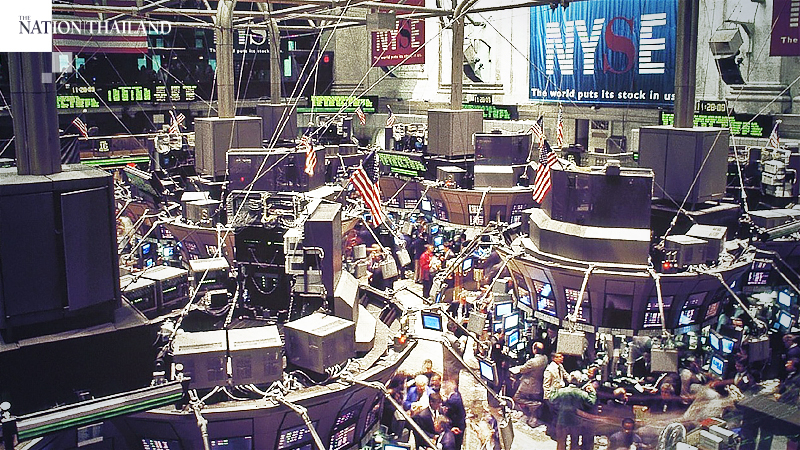Vanguard and NYSE weigh in on U.S. crackdown on China firms

Vanguard Group, the New York Stock Exchange and Nasdaq are getting their chance push back on an escalating risk to their bottom lines: threats from Capitol Hill and the Trump administration to dramatically curtail U.S. investments in Chinese companies.
The U.S. financial titans are among firms participating Thursday in a Securities and Exchange Commission event that's being held to debate the potential perils Americans face when investing in China and other emerging markets.
The seemingly benign topic belies an extremely contentious backdrop in Washington. The Senate unanimously passed a bill in May that's now under consideration in the House that could lead to Alibaba Group Holding Ltd., Baidu Inc. and additional Chinese businesses being kicked out of U.S. stock markets.
The legislation's Republican and Democratic backers say it's needed to protect investors from fraud because China isn't complying with U.S. regulations that require corporate audits to be scrutinized by accounting regulators.
The issue has attracted the attention of President Donald Trump, who has ratcheted up his attacks on Beijing over the coronavirus pandemic and as U.S.-China tensions mount due to Hong Kong. Trump has ordered regulators to review Chinese companies' lack of adherence to U.S. accounting rules and submit recommendations by early August on how to fix the problem, putting the SEC at the center of the fight. The president's critiques come as slumping poll numbers show he faces a difficult road to winning re-election in November.
Vanguard is among giant money managers whose mutual funds invest in Chinese businesses listed on U.S. exchanges, while NYSE and Nasdaq make millions of dollars in fees by allowing Chinese shares to be traded on their platforms. Thursday's SEC roundtable offers the financial firms the chance to tout the benefits of allowing American investors to tap fast-growing emerging markets and offer their own ideas for potential reforms.
"While it is premature to speculate on the possible impacts of pending legislation, Vanguard believes that global diversification and investing in China is beneficial for investors," the company said in a statement.
NYSE said it's "pleased to come together with industry participants to advance the dialogue on how we can best ensure that U.S. capital markets remain the envy of the world." In a July 8 comment letter to the SEC, Nasdaq Chief Legal Officer John Zecca said the exchange operator hopes the roundtable will "generate actionable solutions to address the risks posed by certain emerging market companies."
The event is also featuring SEC staff and executives from major accounting firms. It's not expected to result in swift policy changes as most regulations take months or even years to enact.
An early panel at the SEC roundtable included considerable China bashing courtesy of famous short seller Carson Block. The Muddy Waters Capital founder said that when Chinese companies trading in the U.S. blow up, American affiliates of global accounting firms should be held financially responsible. The proposal is provocative because U.S. accounting firms have no role in scrutinizing the books of Chinese companies, which are typically examined by Chinese audit affiliates.
Block, who has long argued that Chinese businesses lack transparency and are ripping off U.S. investors, said audits of such firms amount to a "rubber stamp."
Adding urgency to the debate over Chinese companies is this year's high-profile accounting scandal at Luckin Coffee Inc. Since reaching a high of $50 a share in January, the Chinese chain has cratered more than 90% in Nasdaq trading, a plunge that's erased about $11 billion of market value. Following an internal investigation, Luckin disclosed earlier this month that fabricated transactions had inflated its 2019 revenue by about $300 million.
The bill that cleared the Senate would kick Chinese firms out of U.S. markets if they don't cooperate with inspectors at the Public Company Accounting Oversight Board for three straight years. SEC Chairman Jay Clayton has said he supports the legislation because denying access to PCAOB examiners creates an "unlevel playing field" for U.S. investors.
Clayton, in remarks prepared for Thursday's event, said he expected the panelists' comments to inform recommendations that regulators are preparing for Trump.
The requirement that all companies that trade on U.S. exchanges submit their audits for PCAOB inspections was implemented in the wake of Enron Corp.'s 2001 accounting scandal. There are more than 200 Chinese corporations that have been allowed to sell shares in the U.S. without complying, according to the PCAOB. Their market capitalization is roughly $1.8 trillion, with Alibaba making up about one-third of the total.





